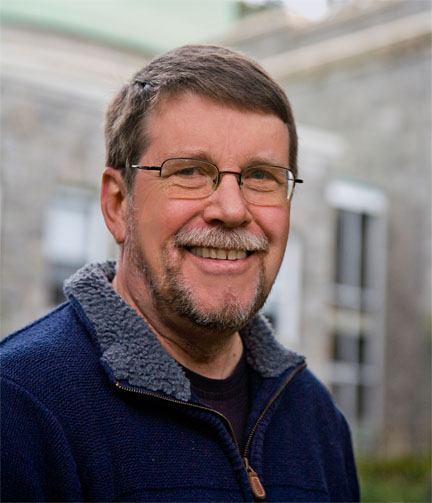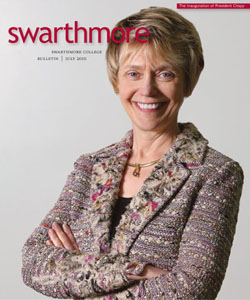Parlor Talk
 Like a building with many doors, a good magazine has lots of entry points. The best magazines—the ones you tuck in your bag for a trip or take with you to the loo—invite you in at every turn. We know that as a Bulletin reader, you’re a peripatetic traveler of our pages, skimming headlines, browsing pictures and captions, or perusing the table of contents. Our job as editors is to stop you for a moment, and then, to intrigue, inform, delight, or entertain you in a way that makes you want to read more deeply.
Like a building with many doors, a good magazine has lots of entry points. The best magazines—the ones you tuck in your bag for a trip or take with you to the loo—invite you in at every turn. We know that as a Bulletin reader, you’re a peripatetic traveler of our pages, skimming headlines, browsing pictures and captions, or perusing the table of contents. Our job as editors is to stop you for a moment, and then, to intrigue, inform, delight, or entertain you in a way that makes you want to read more deeply.
We know many of you turn to Class Notes before you go anywhere else in the Bulletin. There’s hardly a better door into a magazine than a few paragraphs about people you have known since college. In a larger sense, because of your connection to this college, the entire magazine is about you. And Class Notes are the micro to Swarthmore’s macro—the place where the details of your lives are reported and celebrated en famille.
About a week before each issue of the Bulletin goes to press, I read through the Class Notes from “beginning to end”—or, in the case of this issue, from page 50 to page 79. But by doing this, I’m essentially reading them backwards—from the oldest classes to the youngest, instead of in “life order.” It’s like watching a film of life running in reverse: starting with a steady stream of obituaries and remembrances and ending with recent graduates who are starting new jobs, traveling, going to graduate school, and getting married. In between—still running backwards—are the travails of old age, the joys of grandchildren, the relief of retirements and the fulfillment of rewarding activities or second “careers,” the excitement of seeing the kids go to college, the stimulation of jobs and community service, and the birth of children. Roll the same movie forward and you have a pretty accurate picture of life’s post-college progression. Or do you?
We recently received a letter to the editor from an alumna who wished to remain anonymous. Although we don’t print anonymous letters, I will share a portion of what she wrote: “My life has gone in a different direction … [it] has not been filled with great achievements…. I share my story because I believe those who are struggling in life do not send in to Class Notes.”
Not unlike the family photo album, class notes tend to chronicle the high spots—the things we are eager to share—and have historically been silent on the low spots such as career slumps, mental illness, divorce, or addiction. Although this is due in part to human nature, no person should feel any less a Swarthmorean because he or she has suffered, struggled, or failed—or has merely led an “ordinary life.” As a community, Swarthmore cultivates compassion for members of society who are victims of economic, social, and natural forces beyond their control.
Might we also be more open to the stories of classmates and friends whose lives have “gone in a different direction?” The more doors we open into this magazine, the more all Swarthmoreans will feel welcome here—and the better we may fulfill en famille the promise of this special place.
 Email This Page
Email This Page
July 30th, 2010 11:10 am
Dear Jeffrey,
I read this note the other day and have thought of it several times, wanting to write you. Now I find it on-line, and can send a response electronically, which means I'll really do it.
I have done one great thing with my life. My male partner and I adopted two children from Cambodia. My life's dream was to be a mommy, and it happened. I supervise homework, fold laundry, teach my dyslexic son to read, and teach my wired-for-sound other son the value of sitting still sometimes.
But in this, I've chosen? settled for? the kind of legal work a tax attorney does for the first 5 years and moves on from — namely, research and writing. This work gives me an adequate income and freedom — to be a mommy. So it doesn't seem I'll end up one of the lawyer greats. Just a lawyer good.
Your highly intuitive, sensitive, and compassionate post had the effect of making me feel valued as part of the community even if my contribution is not one of conventional acclaim or the gain of fame or wealth.
Sincerely,
Donald Twomey, '83